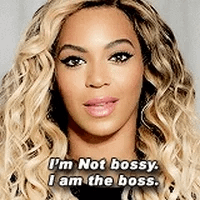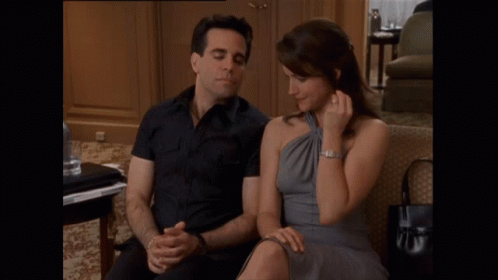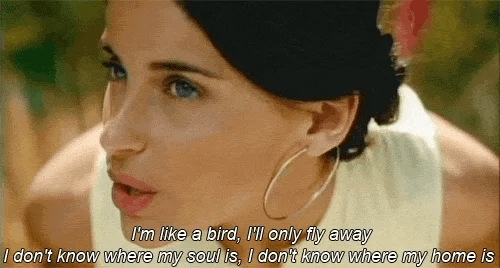Is it normal to change your mind about your career?
Don't love your job anymore? You're not alone
Before we begin…
Without getting too arty farty, freedom of expression is a big reason why I like Substack. I want to think big and write from the heart, not cater to algorithms and squeeze my words into little boxes. However, I also recognise that we are all short on time and it’s easy to feel overwhelmed by long-form essays.
So I’m trialling a consistent template to make things a little more digestible: the mess (a pattern, habit, dilemma, dynamic or pickle that I’ve observed in myself or others), making it make sense (insights from psychology, science, coaching, personal experience, art, culture or other relevant fields that can shed light on the pickle) and the work (thoughts, ideas, resources or strategies that can help us move through the mess).
It’s kind of how I structure things anyway, but I want to honour what you come here for and provide some value, rather than waffle on like a recipe blogger who needs to just cut to the ingredients. Speaking of which, let’s dive in…
What to do when you don’t like your job anymore (part one)
When I was little, I wanted to be a vet. I watched every episode of Steve Irwin and bandaged up my teddies with sellotape and cotton wool. Then my head was turned by early noughties pop stars and supermodels—I would be a fashion designer. I inhaled every copy of Vogue and laboured over sketches, ready for Gwen Stefani to ask me to do her tour wardrobe.
In adolescence, my ambitions adopted a more sensible air and I decided I’d train as a journalist. A week of work experience at a local newspaper (during which I was sent to interview some burly and very indifferent men at a wholesale fruit and veg market on an industrial estate at four o’clock in the morning) quickly put me off.
All of this is to say that it’s normal to change your mind about what you want to be when you grow up. The problem is, we like to pretend that we never stop growing.
The mess
Putting my short-lived career in journalism behind me, I graduated from university with an English Lit degree and no clear roadmap of where to go next. In the throes of impervious youth, this didn’t faze me. I had four part-time jobs: a shop assistant to a highly-strung clothing boutique owner, a sous chef in a vegan takeaway company, an events editor for an online lifestyle magazine, and an intern at a drone technology startup.
I ended up choosing the drones. And that’s how I began my career in marketing.
Like lots of people with a humanities degree, I fell into marketing by accident. I found that I loved it, specifically doing it in the startup world. I loved the ideas, the creativity, the autonomy. I could wear jeans and speak normally, not a pencil skirt or a corporate sign-off in sight. My promotions and pay rises were directly proportionate to the work I put in, no fixed salary bands or bureaucracy. Most of the people I worked with were under the age of thirty and lots of them became close friends.
But seven years in, something started to shift. By this point, I’d been through a lot: sagas and dramas worthy of their own Netflix series, redundancies, insolvencies and a global pandemic that had cost my Dad’s life and thrown mine into sharp relief.
Working in a marketing job was…fine. But it didn’t fire me up like it used to. And honestly? I could no longer feign enthusiasm for venture capital firms and all hands meetings. I already had a family*, with whom I had a lot more in common than OKRs**.
A bright future in marketing leadership positions lay ahead of me. I just couldn’t see myself in it.
* For the blissfully uninitiated, how startups try to sell their company culture to you.
**A beloved goal-setting method of the startup world.
Making it make sense
As much as we like to tell ourselves that our personalities and destinies are fixed, we are, of course, always evolving.
Over the past couple of years, I’ve met lots of other people from the marketing world (and other professions) who have found themselves in a similar position. The jobs that once defined them now feel like ill-fitting clothes. The Director and CMO titles don’t look so shiny. And you know what they say—if you don’t want your boss’s job, you’re in the wrong one.
Hitting a career crossroads can feel hugely destabilising. As I’ve written about here, the in-between is always a vulnerable place to be. Yet it’s perhaps not surprising that so many of us experience them.
When I first started university, social media marketing barely existed. Fast forward to today, and the world of work has changed beyond anything my 18-year-old—or even 25-year-old—self could have ever imagined.
Gone are the days where we’d choose a career and strap in for the rest of our lives. Technology spawns completely new professions and even entire industries every year, at the same time threatening to render others obsolete. We can give important presentations while our partner walks behind the computer screen in their pants or a Boomer parent loudly interrupts to ask if we’d like another cup of tea.
If all that possibility, flexibility and risk (pants and all) wasn’t already mind-boggling, we have also been through a collective watershed in our relationships to work. When the whole world grinds to a halt and life is turned upside down, it gives you a new perspective on what’s important and what constitutes “success”.
Then there’s that fundamental but all too easily forgotten truth: as much as we like to tell ourselves that our personalities and destinies are fixed (and hey, I love astrology as much as the next millennial), we are, of course, always evolving.
The work
I recently did some research interviews for a coaching programme I’m running on navigating career transitions. So many of the interviewees (most of them marketers) had been through the same trajectory as me.
I started to notice a pattern (one that has been widely documented on social media, from the #grind of the 2010s to the quiet quitting of the 2020s). We had all been through three major phases in our careers, which I like to think of as the three Hs (for no other reason than that alliteration pleases me).
Phase 1: Hustles
The Golden Age/Gilded Cage: we are defined (and often overly-preoccupied) by our work. We get our kicks from humblebragging about overtime and chasing the next promotion, our speech peppered with slick-sounding acronyms we often have to Google to make sure we are using correctly.
Phase 2: Hates it (said in the voice of Sex And The City’s Anthony Marentino)
The Great Resignation: we clockwatch until 4:59pm, cancel Steven Bartlett and maybe even quit our jobs completely. We release ourselves from the burden of work and have a healthy reckoning with how it impacts our identity and wellbeing. For many, this is a much-needed recovery period from burnout.
Yet however much we self-care, the Hates It era can take on a stagnancy that soon starts to feel heavy in its own way. We miss having a sense of purpose and direction, and begin to tire of our own cynicism.
Phase 3: Heals
Both individually and collectively, I’m fascinated by how we can begin a new era in the way we work. One that may not be perfect, but can give us more of the days where we feel fulfilled and satisfied by our work, without sacrificing our health, headspace boundaries or joy to feed it.
This process of healing will, of course, look different for everyone. For a while, I did simply have to de-prioritise work’s status in my life, make space for my grief, and recover from the chaos of startup life.
Only then could I start to feel curious about my career again and begin a long journey of self-reflection—defining and redefining my values, overhauling my perception of “success”, hunting for clues in the story of my career so far to own my strengths and identify my purpose.
Ultimately, I didn’t do anything dramatic, like start a crochet business or move to New York (although both sound appealing). I realised that a full-time position wasn’t the right environment for me to thrive, so I followed my lifelong independent streak and went freelance.
In a weird way, I came full circle, back to juggling multiple projects and relishing variety like I did fresh out of uni. I still do all the things I like about startup marketing—the ideas and the creativity—but with much more autonomy and zero OKRs. And of course, all that reflection led to a whole new branch of my career as a coach.
I guess that’s the point I’m trying to make in this post. We often think of our career “trajectory” as a linear, steadily mounting path. When actually, it can be a lot more expansive than that—growing, changing and unfurling as we do.
Part two: coming soon
If you resonate with any of the above, I’d love to hear from you in the comments. How have you noticed your relationship with work fluctuating over the years? Can you map out any of the three phases? Is there a fourth, fifth or sixth phase I haven’t even covered?!
I’ll be following up with a part two, where we’ll take a more practical look at what to do when you find yourselves at a career crossroads.* Drop me your email below and I’ll send it to you as soon as it’s published.
*P.S. I offer 1:1 coaching on this exact conundrum, so please get in touch if you’re curious/tell a friend if they’d be.






